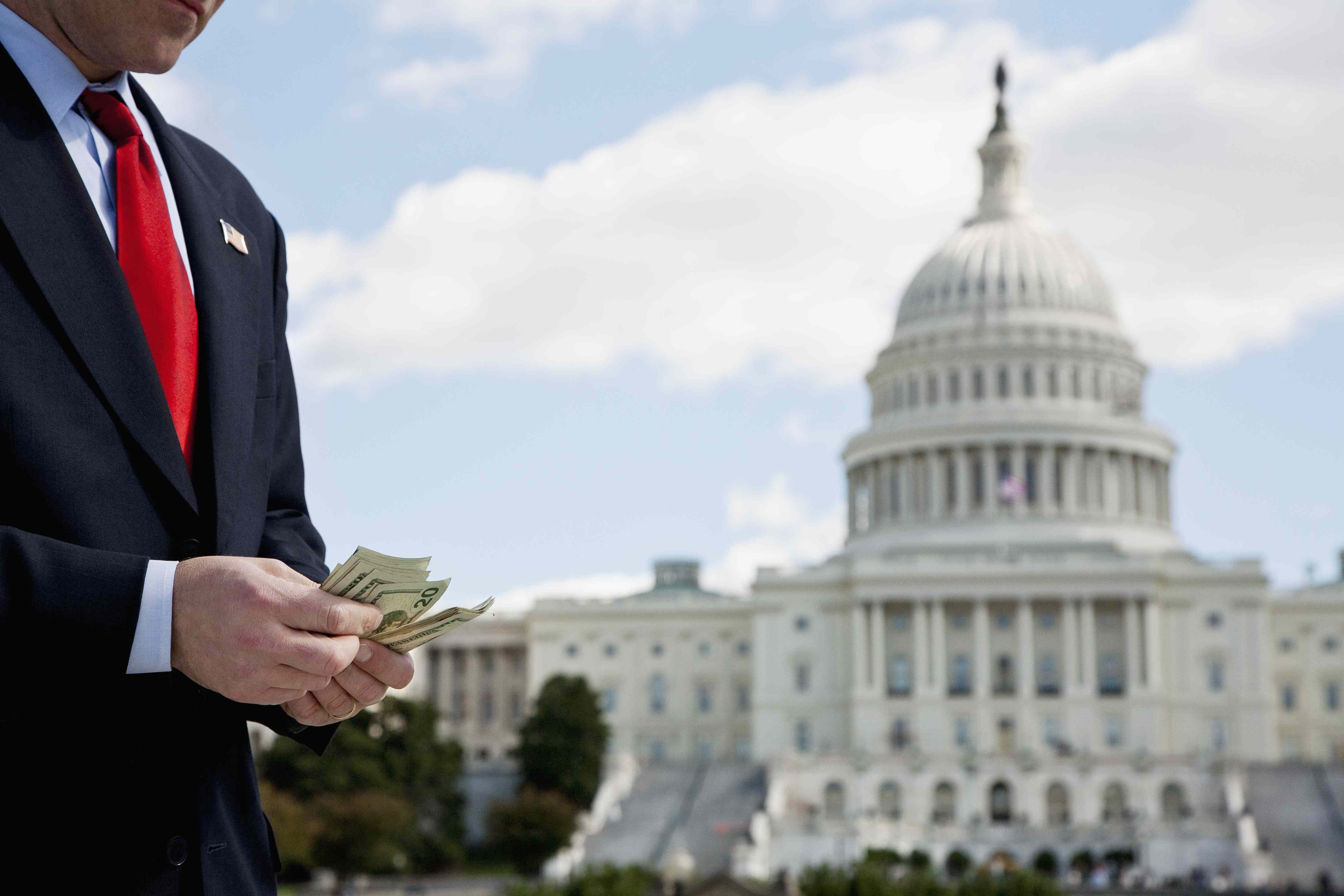
Key Takeaways
- Politicians face strict gift limits—$50 per gift in Congress and $20 for executive officials—but there are plenty of exceptions to the rule.
- Gifts from lobbyists are technically banned, but many travel and entertainment perks are legally accepted as campaign activity.
- Ethics rules don’t apply to the president or vice president. That gap, watchdogs say, creates serious risks for conflicts of interest.
The Department of Defense raised eyebrows after it accepted a luxury Boeing 747 jet from the government of Qatar with the hopes of upgrading it to transport President Donald Trump. But the legality? That’s murky. In fact, when it comes to gift-giving in American politics, the rules aren’t just complex—they’re full of exceptions, loopholes, and interesting workarounds.
Federal ethics laws aim to limit the influence of money and favors on elected officials. But as Kedric Payne, general counsel and senior director of ethics at the Campaign Legal Center, puts it: “The rubber meets the road with all of the exceptions.”
Here’s how the system works—and why many watchdogs believe it’s overdue for an overhaul.
What the Rules Say
Members of Congress can’t accept gifts over $50 from any one person or organization at a time—and no more than $100 per year. Executive branch officials face an even lower threshold of $20 per gift. But both categories of officials operate within systems riddled with exceptions.
“There’s a complete ban on receiving any gifts from lobbyists,” Payne explains. “But the problem is, there are over 20 exceptions to the gift rule for members of Congress and for members of the executive branch.”
Those exceptions include food, travel, and most notably, campaign-related activities—which Payne says can “swallow the rule.” That means lobbyists can’t directly buy a lawmaker a single beer, but they can fund an extravagant weekend fundraiser complete with luxury meals and resort stays—so long as it’s done through campaign contributions, he notes.
The Foreign Gift Problem
The Constitution’s emoluments clause forbids federal officials from accepting gifts from foreign governments. But again, the lines are blurry in practice.
Payne notes that foreign gifts “have to be very small in nature, or they have to be declared,” and are often “transferred to the government.” Still, there’s plenty of gray area. “We don’t know, for example, if it’s an emolument when [Trump] has foreign investors buy his meme coin and get access to him at a dinner,” Payne says.
Outside of emoluments, there are ethics rules that apply broadly across government branches. Violating these rules can result in sanctions, including censure, fines, restrictions, or even expulsion, but these rules do not apply to the president or vice president.
What About Ethics Norms?
Even when actions technically follow the law, they can still violate longstanding ethics norms—unwritten but widely respected standards meant to uphold public trust. That’s particularly important for the president and vice president, who are not covered by formal gift rules but are generally expected to adhere to these norms.
“What holds those folks under any restrictions is this tradition… and Trump has clearly violated the ethics tradition that a president will avoid even the appearance of a conflict of interest,” Payne says, referring to the president’s acceptance of the Qatari plane.
$148 million
The estimated profits from sales of $Trump, the president’s memecoin. The top buyers of the coin were invited to a private dinner and a White House tour.
What About Disclosure?
Federal law requires officials to disclose gifts over $480, thanks to the Ethics in Government Act. But Payne notes that if it falls under an exception, you don’t have to disclose the gift.
That means most gifts tied to campaign travel, events, or personal relationships remain invisible to the public. “You don’t see much disclosed… because if people receive gifts, they typically fall under one of the exceptions,” Payne adds.
Examples of Legal Luxury
Consider this: A lobbyist can’t legally buy a lawmaker a cup of coffee—but they can write a $5,000 campaign check so that same lawmaker can be flown to West Palm Beach for a luxury fundraiser complete with drinks, dinner, and more.
“It happens all the time,” says Payne. “The member of Congress will say, I’m staying at the Ritz-Carlton, for example, and they’ll send a [donation] invitation out to lobbyists.” It’s legal—and common. In one example, Sinema’s campaign spent thousands of dollars at resorts in Wyoming, Montana, and Las Vegas. All were legal campaign expenses, but they effectively serve as indirect luxury gifts.
And it’s not just Sinema. Payne says members routinely send fundraising invites to lobbyists with set dollar amounts to cover trips. “It’s explicit,” he adds. “This used to be the type of corruption that would get media attention.”
Reform on the Table
There is movement for reform, at least on paper. Payne cites the reintroduction of the Anti-Corruption and Public Integrity Act, sponsored by Senator Elizabeth Warren. The bill would tighten definitions of lobbyists, boost disclosure, and create clearer rules around presidential conflicts of interest.
Other bipartisan legislation targeting congressional stock trades is also gaining traction, though Payne notes that it is still unclear if these bills will ultimately pass.
The Bottom Line
Gift limits exist, but exceptions and ethical blind spots often undermine them. Furthermore, presidents aren’t bound by gift rules at all (aside from the Constitution’s emoluments clause). And in Congress, lobbyist-funded campaign events can look and feel like luxury trips, and it’s still unclear whether new rules will ultimately reduce some of the grey areas.